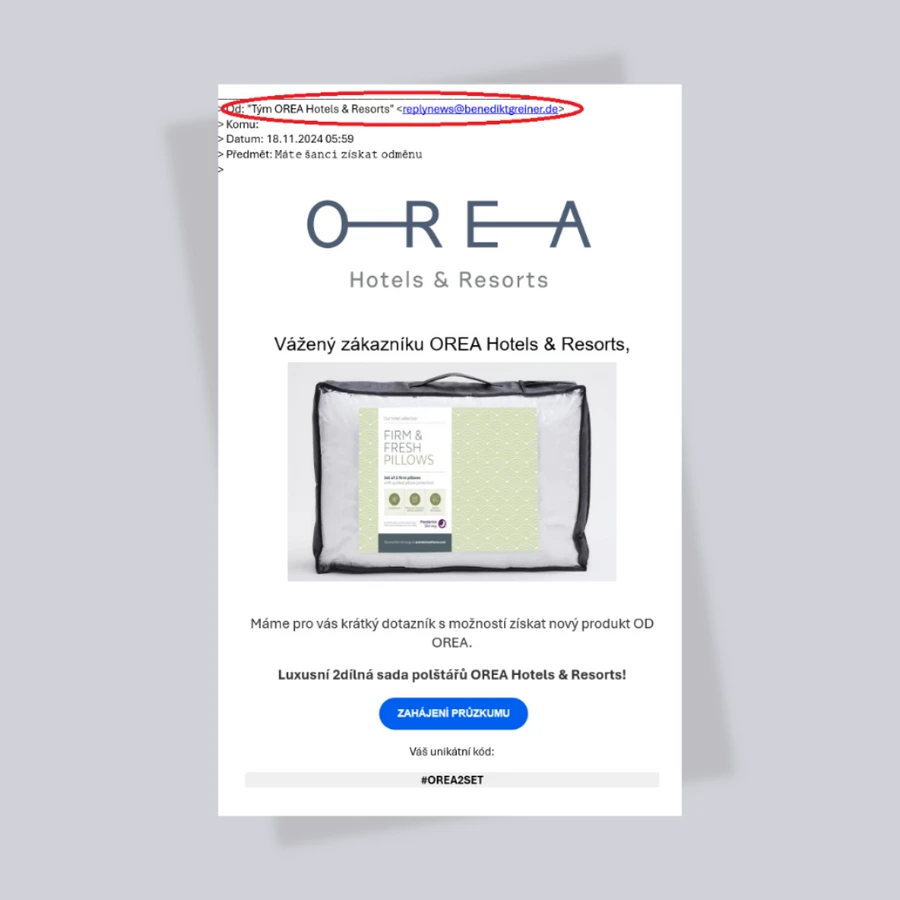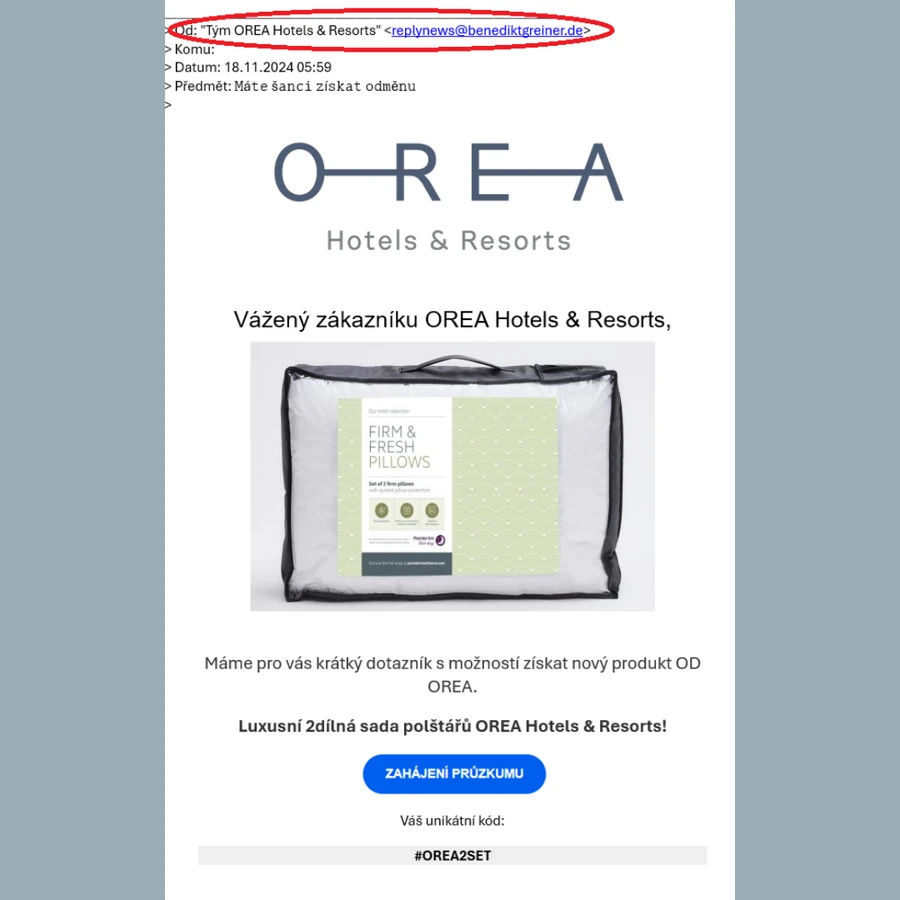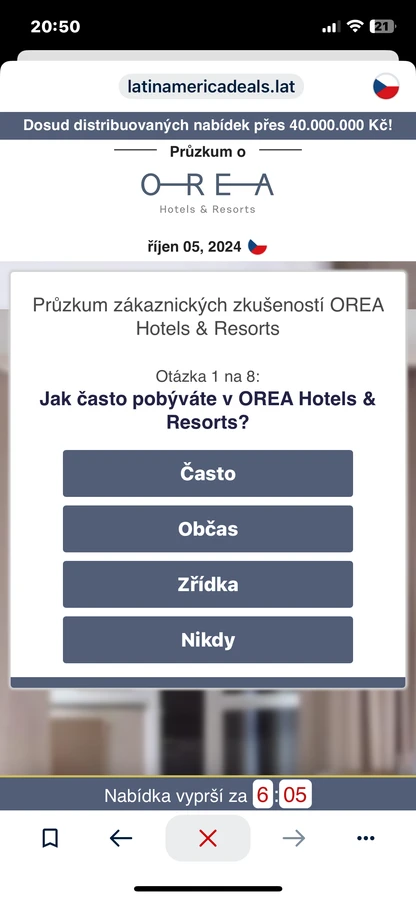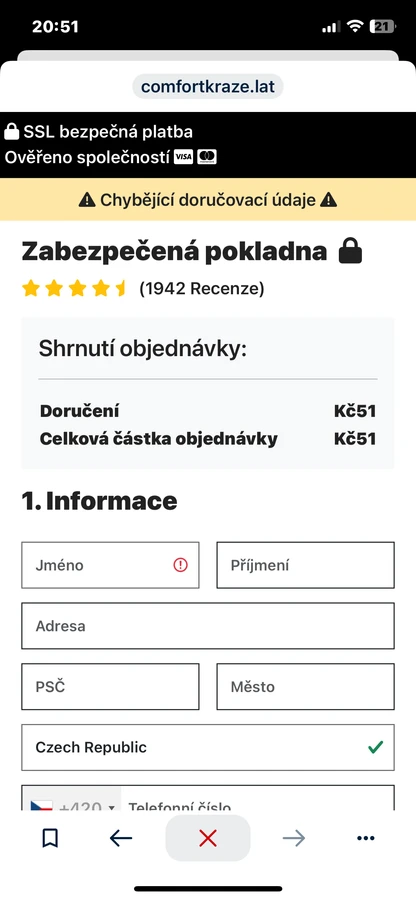Examples of phishing emails (click for larger view):

Please note the fraudulent survey
Recently, we have seen repeated attempts to exploit the reputation of OREA Hotels & Resorts to obtain sensitive data through fake emails.
The fraudulent messages promise OREA pillows as a reward for participating in a survey, but are actually designed to lure your sensitive information. We would like to inform you how to recognize such attacks and protect yourself from their consequences.
How to spot phishing
If you have any doubts about the security of a message, try checking it against the most common signs of phishing emails.
- Phishing emails often masquerade as messages from trusted institutions. In the header of the email you see an unprofessional email address e.g. instead of info@orea.cz the email comes from replynews@greenmoster.com (or any other than @orea.cz).
- You can tell by the suspicious email address, spelling mistakes or urgent calls for immediate action.
- They typically contain links to fake sites that try to look credible, but the site address looks suspicious (e.g. www.orea.2word.com instead of www.orea.cz).
- Do not open attachments or share sensitive information such as credit card details.
- Let us know at marketing@orea.cz if someone has tried to deceive you on our behalf.
How to deal with phishing
Everyone makes mistakes from time to time. We have prepared recommendations on how to minimize its consequences.
- Change passwords: Immediately change passwords for any accounts that could be compromised, especially email, banking or social media. Use a strong and unique password.
- Contact your bank: If you have provided payment details, inform your bank immediately so they can block the cards or prevent account misuse.
- Report phishing: Inform the Czech Police immediately after discovering the fraud. If you receive an email that appears to be from our company, let us know at marketing@orea.cz.
- For future reference: try to identify the signs of a fraudulent email that you missed the first time. This will prevent similar complications in the future.
Offer and services
OREA Hotels & Resorts

Offer and services
OREA Hotels & Resorts
© 2026 OREA HOTELS s.r.o.
Made with ♥ by BOOTIQ




